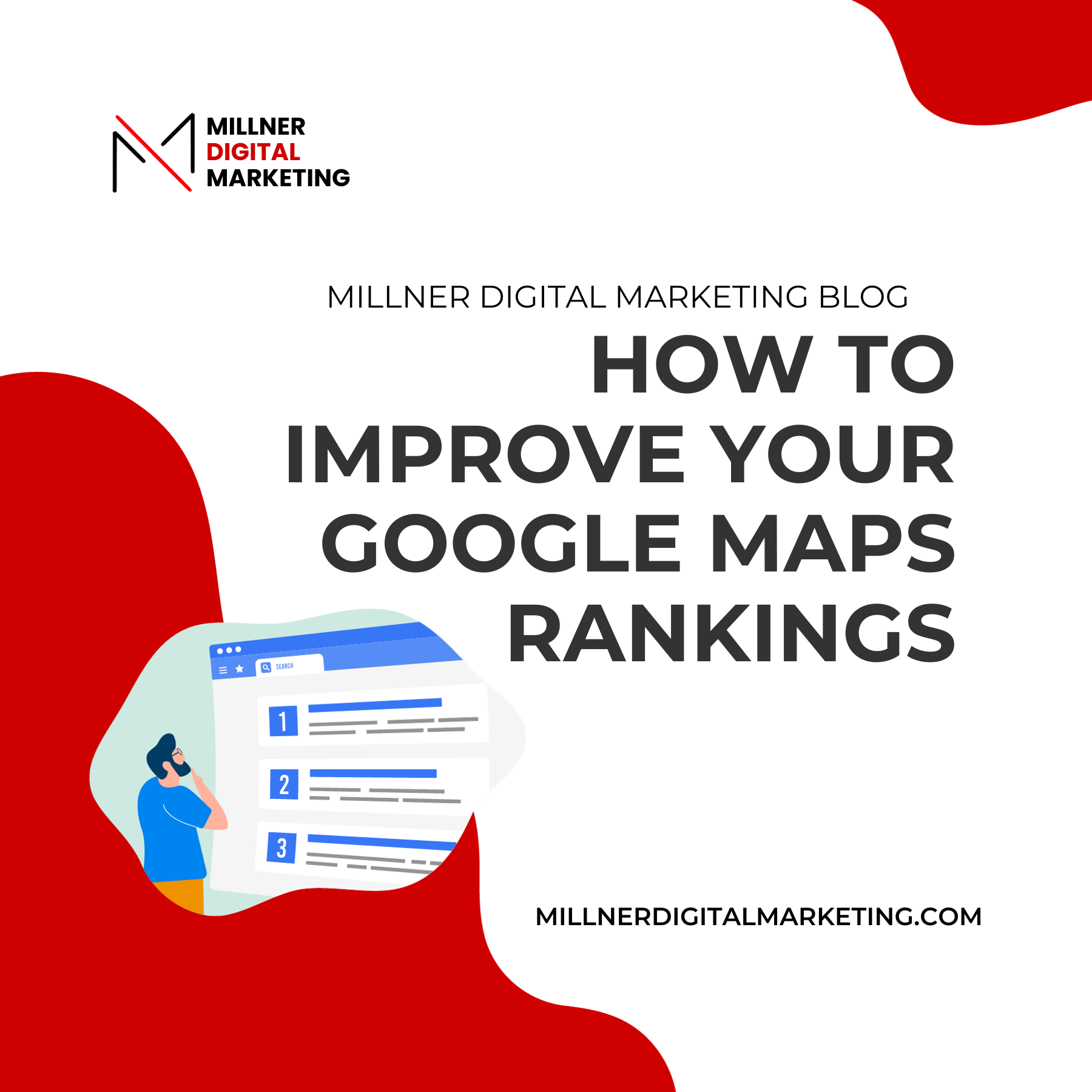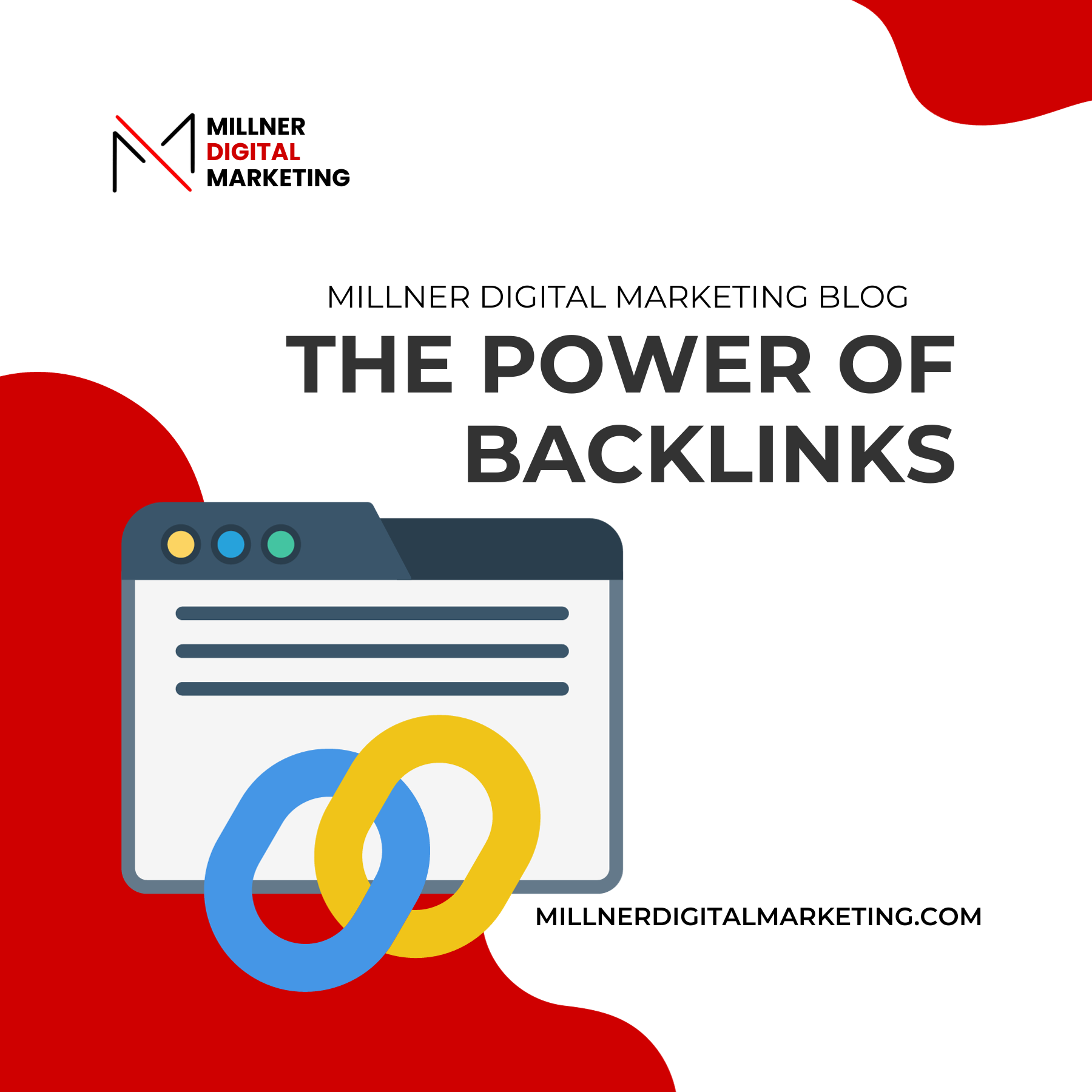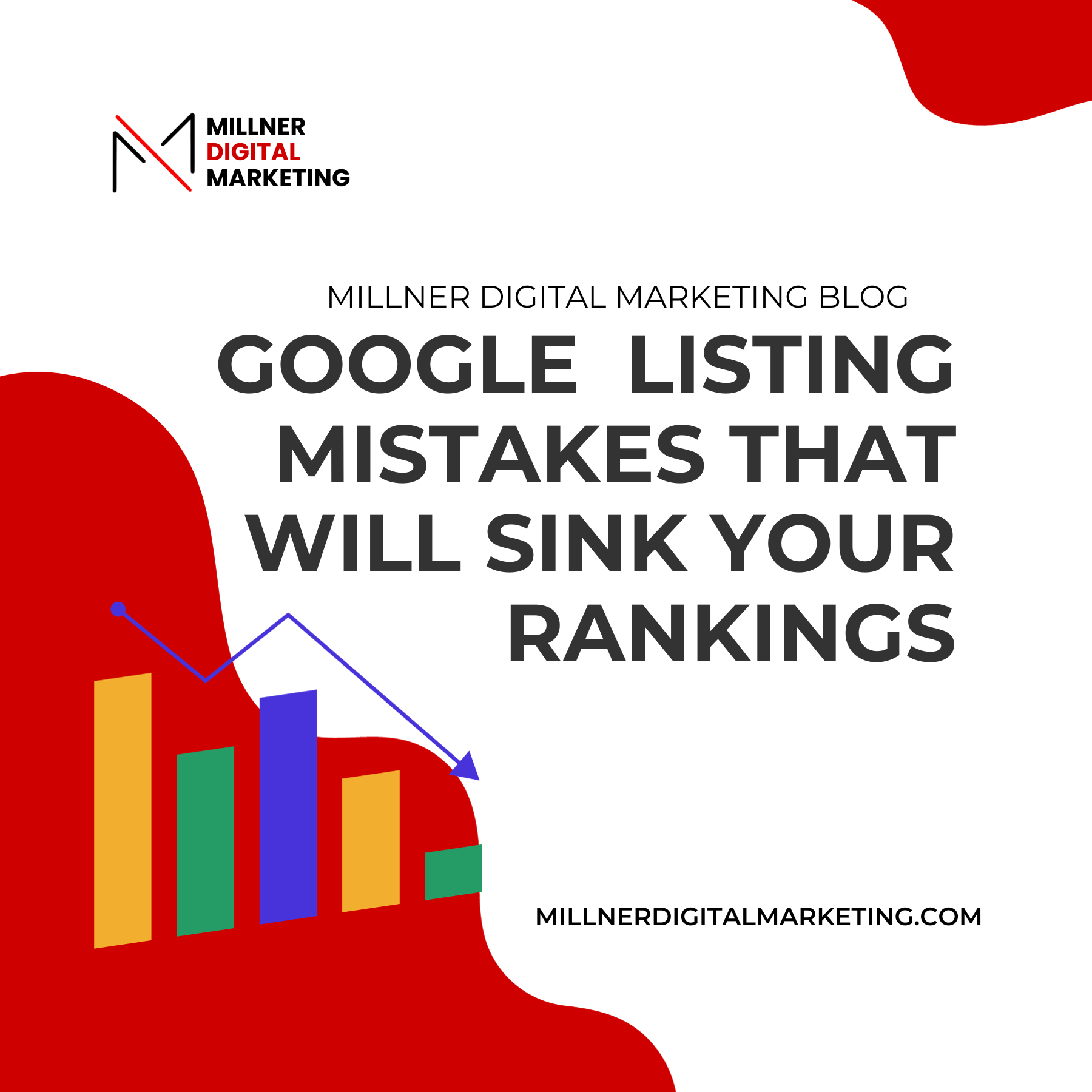Email: scottmillner@millnerdigitalmarketing.com
Phone: 706-715-5647

Understanding Keyword Density and it's Importance in SEO
As a business owner in the modern digital age, having a strong online presence is critical for success. With numerous businesses competing for the top spot, ensuring that your website stands out and attracts the right traffic can be challenging. One of the essential elements of search engine optimization (SEO) is keyword density, which refers to the frequency of a specific keyword appearing on a page in relation to its overall word count. By strategically incorporating keywords into your content, you can improve your website's ranking and visibility on search engine results pages (SERPs). This increased visibility can lead to higher organic traffic, more qualified leads, and greater business success. In this discussion, we will delve deeper into keyword density, explore effective strategies for optimizing it, and provide actionable tips for boosting your website's ranking through improved keyword usage. So, let's get started and unlock the power of keyword density to take your website to new heights!

What is Keyword Density?
Keyword density is the ratio of a particular keyword's frequency to the total number of words on a page. It provides insights into how often a keyword appears in the content, indicating its relevance and importance. For example, imagine a 500-word article discussing a specific topic. If the article mentions the targeted keyword ten times throughout, the keyword density would be calculated at 2%.
Why Keyword Density is Important
Keywords enhance your website's visibility and positioning on search engine results pages (SERPs). Alongside valuable content and optimized website design, understanding and selecting the right keywords for your market is essential. This helps drive user engagement, increase sales, and differentiate your site from competitors.
A significant part of effective SEO involves conducting thorough keyword research to identify high-performing keywords that align with user intent. Search engine algorithms, like Google, consider various factors, including geographical location and page authority, which is influenced by the number of visitors to your site and reputable backlinks. However, keywords remain a vital element in achieving website ranking success.
In the early days of SEO (Search Engine Optimization), website owners would often resort to keyword stuffing. This involved excessively repeating keywords in a misguided attempt to manipulate search engine rankings. It's important to note that keyword stuffing is considered a black-hat SEO practice. Engaging in keyword stuffing can result in penalization, including removal from SERPs. Therefore, it is crucial to employ ethical and strategic approaches when optimizing your website's content and keyword usage.
Today, content creators and website owners prioritize producing high-quality, informative, and engaging material that genuinely serves the needs of their audience. By focusing on providing value rather than artificially inflating keyword density, websites can establish credibility and ultimately rank higher in search engine results pages (SERPs), driving organic traffic and creating genuine engagement.
How Does Keyword Density Affect SEO?
While stuffing keywords onto a webpage is a thing of the past, keyword density still plays a crucial role in
SEO. Search engines employ sophisticated algorithms to crawl and index web pages, and having a well-defined and relevant keyword strategy can significantly aid these bots in understanding the purpose and context of your web page. A thoughtfully crafted, keyword-rich page signals to search engines that your content is highly pertinent, ultimately contributing to an improved ranking in search engine result pages (SERPs). However, it is important to note that overusing a keyword can harm your ranking, as it tells search engines that your page may be spammy or manipulative. Thus, striking the right balance is key to achieving optimal SEO performance.
How to Calculate Optimal Keyword Density
Keyword density can be calculated using a simple formula. Divide the number of times a keyword appears on a page by the total number of words on the page. For example, if your page has 2,000 words and uses the keyword 20 times, the result would be 20 / 2000 = 0.01. Multiply this by 100 to get the percentage, which is 1%.
Another formula used to assess keyword usage is TF-IDF (term frequency-inverse document frequency). This formula evaluates the frequency of a keyword on specific pages (TF) compared to its frequency across multiple pages on your site (IDF). The result helps determine the relevance of your keyword for specific pages.
While TF is straightforward, IDF measures the rarity of a keyword across multiple documents. IDF values range between 0 and 1, where lower values indicate more frequent keyword use across your pages, and higher values indicate more prevalence on a single page.
What is Good Keyword Density?
Keyword density has no strict rules except for the widely known advice of avoiding excessive keyword stuffing. Many SEO experts suggest using approximately 1-2 keywords for every 100 words of content, which translates to around 1-2% keyword density.
Keyword Variants
It is also important to consider keyword variants. Instead of solely relying on the primary keyword, you can include similar variations that are not identical to your main keyword. Let’s say you are a landscaper who works in Athens, GA. Your primary keyword would most likely be "landscaper in Athens." Stuffing this keyword into your website content to the point where it is unnatural will cause more harm than good to your website's ranking performance on SERPS.
Instead, consider including variants of your keyword. These are terms that have the same meaning but do not exactly match. For instance, instead of using “landscaper in Athens” over and over again, you can switch it up and use "gardener in Athens," "lawn care Athens," "garden maintenance," or "lawn care service" to help your page rank higher on search engines without overly stuffing your content with the exact keyword.
If you are uncertain which variants make the most sense for your website, you can check out the "searches related to" section at the bottom of Google's search engine results page (SERP) for your primary keyword. Google's understanding of user intent is quite advanced, and this section will display terms similar to your primary keyword, helping you broaden your keyword strategy.
High-Quality Content
Instead of getting caught up in manually measuring keyword density, it's better to prioritize creating
high-quality content that provides genuine value to your audience while incorporating your keywords naturally. Utilizing tools like Yoast SEO can be helpful as they provide estimations of your page's keyword density and offer suggestions for improvement. It's worth noting that keyword density calculations are not an exact science. So, focus on creating valuable content that resonates with your readers while strategically utilizing your keywords.
Where To Place Your Keywords
Keywords remain significant as they are associated with entities and semantic search. Search engines rely on the language and context of your content to grasp the webpage's purpose.
Keywords should appear in the title and subheadings of your page. You should think about where you put keywords so that people can easily understand your content and help search engines recognize it. Some places to add keywords for SEO include titles, subheadings, and within the text itself.
Take note of the following areas to consider when adding keywords for SEO.
The Title Tag
Placing your target keyword in the title tag is highly effective. It is the initial element users and search engines encounter when they come across your page. The title tag should contain a relevant keyword at the beginning, providing immediate clarity on the page's subject matter.
The Meta Description
The meta description is a brief summary that appears below your page title in search engine result pages (SERPs).
While the meta description does not directly impact your rankings, incorporating relevant keywords provides users valuable context and information, potentially increasing their likelihood of visiting your page. Consequently, this can improve your click-through rate (CTR) from Google search results.
The URL
To ensure optimal page optimization, it is advised to incorporate your targeted keyword in the URL. This informs users about the content they can expect from visiting the page and provides valuable context to search engines during crawling and indexing. It is recommended to avoid the use of underscores (_) and common stop words such as "and" or "in."
The Heading Tags (H1, H2, H3, etc.)
Using your chosen keyword within heading tags, such as H1, H2, and H3, improves comprehension and organization of your content for both users and search engines. It is necessary to place the keyword where it fits naturally and is relevant to the overall context.
The Body Text
Including relevant keywords naturally throughout your webpage is important. However, it's not advisable to rewrite content solely to increase keyword repetition, as this can compromise clarity.
Nevertheless, it's a common SEO practice to incorporate your target keyword within the first 100 to 150 words. People often believe that this positively affects SEO.
Most importantly, it assures your users that they'll find the information they seek.
For instance, if you're starting a page about pool cleaning, you could begin with a statement like, "Pool cleaning is important and essential for any homeowner who has a pool and should be done on a regular basis"
Remember that on-page SEO is just one aspect of your overall SEO strategy. The primary focus should always be creating valuable, well-written content that benefits your users.
The Alt Tags for Images
When optimizing images for search engines, many people overlook alt tags. But what is an alt tag? And why should you care about incorporating keywords into it? An alt tag is a short description of an image that appears when the image cannot be loaded. It aids accessibility for visually impaired individuals and serves as important metadata for search engines. By including relevant keywords in your alt tags, you can improve the visibility of your images in search results. Don't neglect this aspect of SEO - optimize your images with descriptive and keyword-rich alt tags.
Other Factors to Consider
While keyword density is important, several other critical elements can significantly impact your website's ranking in Search Engine Results Pages (SERPs). Beyond just keywords, the quality and relevance of your content play a crucial role in attracting and retaining users. Additionally, optimizing the user experience of your website, ensuring seamless navigation and engaging design, is vital for driving organic traffic and improving your ranking. Moreover, with the increasing prevalence of mobile devices, having a mobile-responsive website is no longer a luxury but a necessity to maintain a competitive edge online. Lastly, off-page SEO techniques, such as actively building
high-quality backlinks from authoritative sources, can enhance your website's visibility and establish credibility with search engines. By considering and optimizing all these aspects, you can boost your website's visibility and increase its chances of ranking higher in SERPs.
Conclusion
To sum it up, keyword density is an essential factor to consider when understanding Search Engine Optimization. Knowing how to calculate and optimize for the best keyword density for each page can drastically enhance your website’s visibility on search engines. The key is to have the right balance of keywords in your content. Both too many or not enough keywords can affect SEO negatively. Knowing some foundational elements, such as synonyms or occurring verbs, and having a comprehensive content strategy are also important steps toward improving SEO results. That being said, it's time to fully embrace this concept of keyword density and use it as a tool to reach your desired web goals. Are you having trouble with keyword density or quality content writing? Have our expert content writers write it for you, and watch your website soar in ranking!
READY TO WORK WITH
MILLNER DIGITAL MARKETING?

GET IN TOUCH
We will get back to you as soon as possible
Please try again later
MORE MARKETING TIPS & TRICKS

Navigation
Contact info
706-715-5647
scottmillner@millnerdigitalmarketing.com
295 Morning Dr, Athens, GA 30606, United States of America
| Millner Digital Marketing LLC









